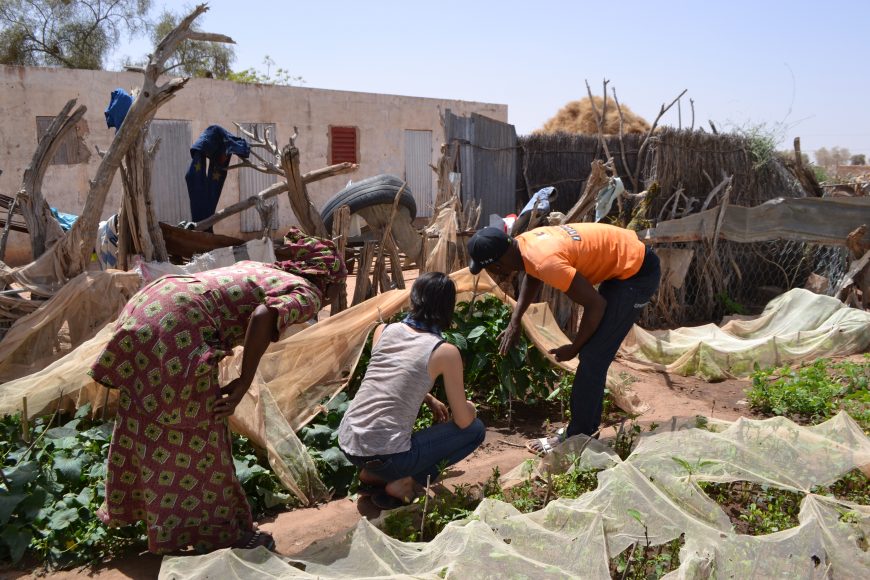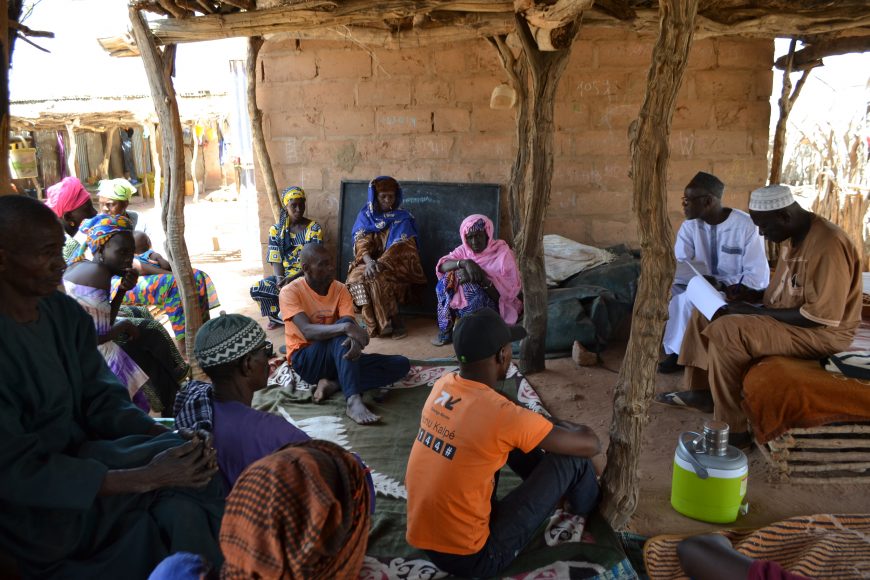Improving agriculture, employment and local opportunities to address root causes of rural-urban migrations
Caught between the issues of territorial disparities, environmental and climatic degradation, and lack of employment opportunities, Senegal is now faced with significant migration rates. The migration phenomenon is constantly growing, with impacts at the national, regional and international levels.
Rural exodus is now a reality for a quite large part of the Senegalese population, with increasing concentration rates in the main urban centres – particularly Dakar, Diourbel and Thies. Outside Africa, the European Union is the main destination for Senegalese migrants, who settle mostly in France, Italy and Spain, considered as the three most attractive countries (2008-2013 period).
The lack of economic opportunities as the leading cause of migration in the Matam region
ACTED is present in the rural region of Matam, in the North-Eastern part of the country, to support vulnerable populations. In particular, ACTED implements a project to strengthen food and nutritional security, while seeking to boost local know-how and employment opportunities in the region and address the root causes of migration.
The Matam region has been facing recurrent food crises for several years, further exacerbated by chronic droughts that leave the environment and agriculture weakened. Agriculture is the main source of income for 50 to 75% of the families surveyed in the framework of ACTED’s assessments in the Matam region, for whom the vast majority of the crops are intended for their own consumption.

More and more people are choosing the migration route, most of them in search of new employment opportunities. A survey conducted by ACTED in July 2017 showed that 40% of the beneficiary families of its food and nutrition security project count migrants among their members. In more than 3 out of 5 cases, these migrants have left the region in search of employment opportunities – nowadays the main cause of migration in the region.
Enhance local business models to increase revenues
ACTED seeks to promote local economic models to enhance local employment opportunities and reduce poverty. The NGO therefore developed a range of complementary activities, with the support of the European Union, to help limit food expenses and even increase families’ incomes by improving agricultural production. ACTED notably developed market gardening activities to complement traditional agricultural activities during the rainy season, and distributed agricultural inputs to the most vulnerable – according to an ACTED survey, agricultural inputs represent up to 35% of the families’ debt. The populations also participated in agricultural, market gardening and nutrition training.

Service agents to support sustainable employment
Most of the villages where ACTED intervenes are very isolated and not accessible by road. Remoteness compromises access to markets, and therefore supply of agricultural equipment. Against this background, ACTED has set up a network of community relays who are in charge of supervising activities throughout the agricultural season and to share best practices. These service agents are mobile agents who sell equipment and seeds to families who live far away from urban centres and ensure they have access to quality equipment.
With this project, ACTED was also able to support 30 nutrition initiatives at village-level, thus contributing to developing entrepreneurship while strengthening these initiatives with technical knowledge and management skills, allowing them to grow, become more profitable and provide an inspiring business model for other similar initiatives. It also supports service agents in developing their agricultural and business management skills.
By supporting these village initiatives, ACTED contributes to encouraging sustainable business models to address food and nutritional insecurity.